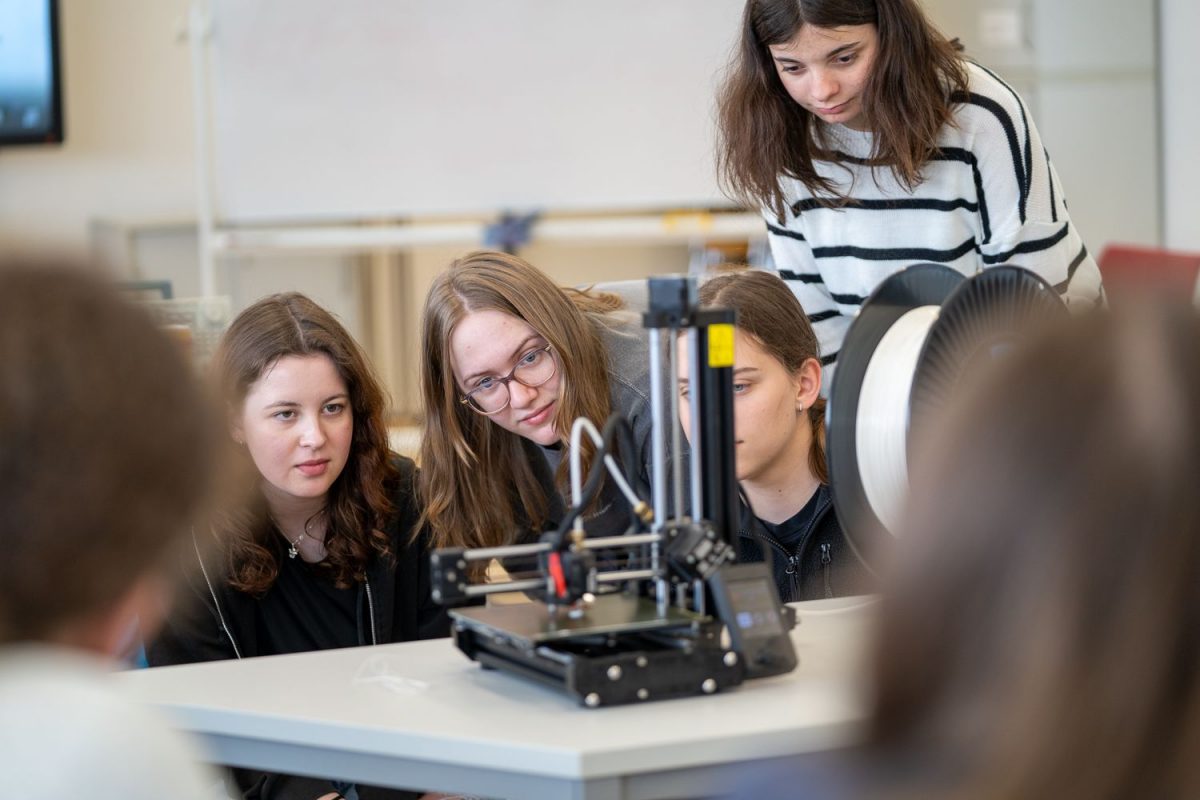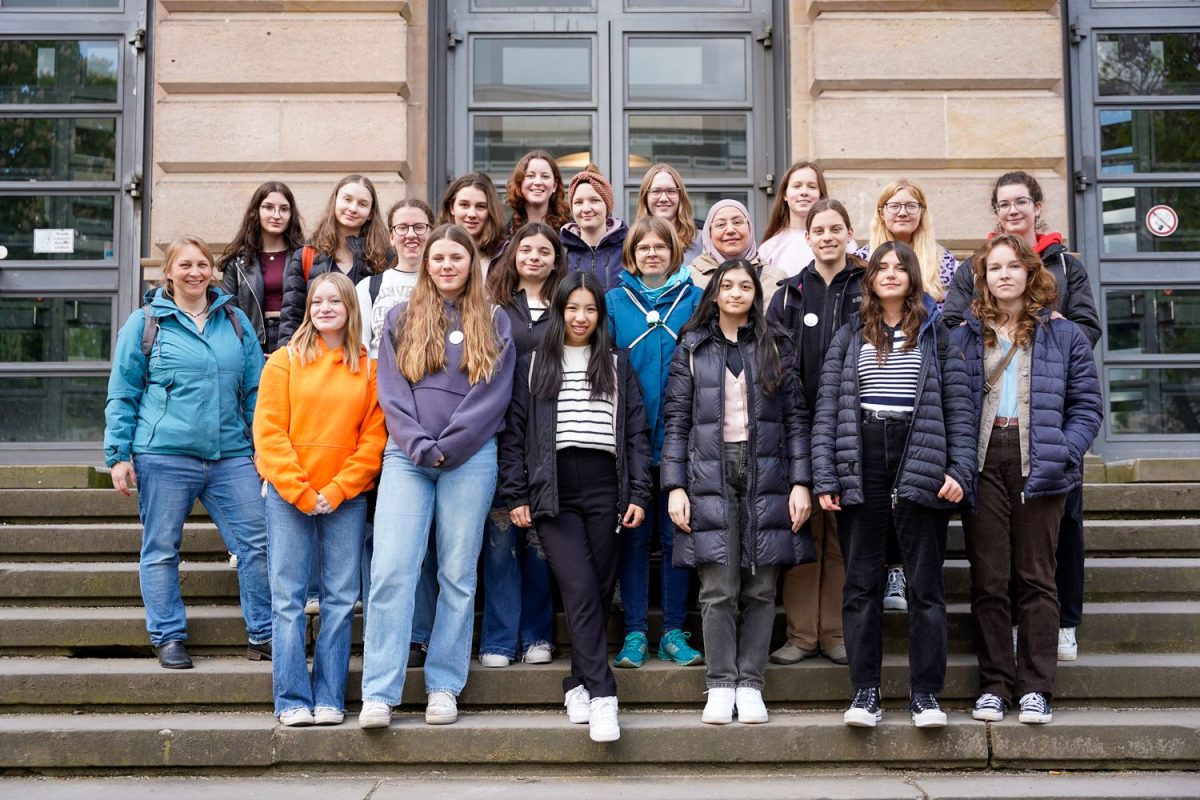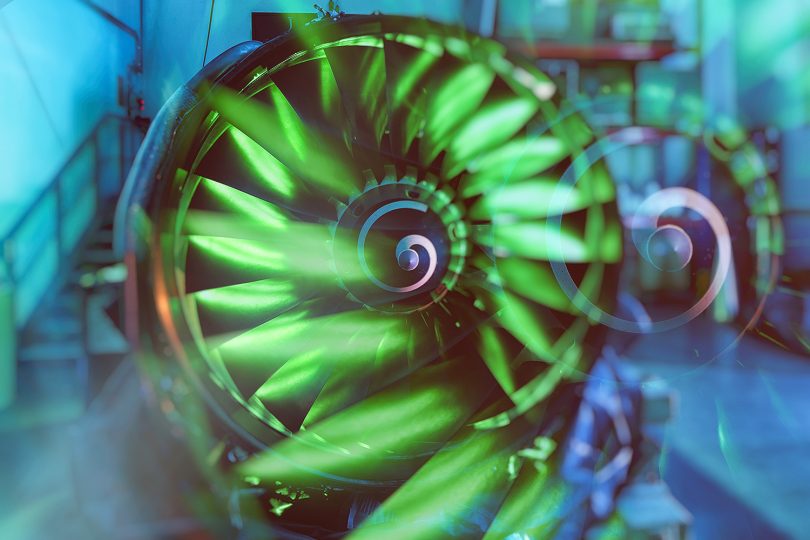STEM research that fascinates changING regio research club: schoolgirls experiment with sustainable aviation
Experiments in the wind tunnel, flying in a flight simulator and a Cutebot challenge: for the 18 schoolgirls in the changING regio research club at TU Braunschweig’s SE²A – Sustainable and Energy-Efficient Aviation – Cluster of Excellence, four intensive days were all about technology, science and the world of sustainable aviation research.
“What we have learnt here and how we have experimented cannot be compared with physics lessons at school,” summarises student Alina Foege, who wants to study mathematics after graduating from high school. “The tasks are more challenging, more intensive and have more practical relevance. I would like to be able to travel to TU Braunschweig more often to gain further insights.”
The meeting in Braunschweig was also the highlight of the hybrid format changING regio, which was organised for the first time alongside the successful changING research club. The students had been meeting online once a week since February to experiment and learn more about the working world of engineers and researchers.
The 18 students in grades 11 and 12 from the region between Schöppenstedt and Osnabrück, Bad Harzburg and Lüneburg stayed until the end. And they all accepted the invitation to come to Braunschweig to get to know the institutes, the changING team and each other personally. They were accompanied by female university students and doctoral candidates who were not only able to tell them interesting facts about studying at TU Braunschweig, but also acted as role models.
Expertise that sticks to memory
Dr Anne Geese, Dr Dina Al-Kharabsheh and Tessa Horenburger from the Department of Physics Education at TU Braunschweig, together with the institutes involved in the Cluster of Excellence and their scientific staff, had put together a varied programme for the students: Laboratory visits, experiments, dialogue with researchers, discussions with scientists and a workshop on self-efficacy.
“I was really impressed by the CircularLab at the Battery LabFactory Braunschweig at the research airport, where they are investigating the recycling of lithium-ion batteries,” says student Luise Lange. “I will never forget what we learned there.” Her school’s careers service advised her to take advantage of all the opportunities on offer. “When I read the changING flyer, I signed up straight away. Even though my focus at school is on sports, I found the programme exciting and really wanted to take part.”
Unbridled enthusiasm for experimentation
The students’ enthusiasm for experimentation was unstoppable. Even in the evenings, in the youth hostel where the girls were staying, they worked on their laptops in a relaxed atmosphere, programming the Cutebot, a microcontroller-operated robot, for a competition in the field of autonomous driving at the Niedersachsen Automotive Research Centre (NFF).
The fact that only girls were allowed to experiment in the changING regio research club was well received by the students. According to the participants, the exchange was more open, no one had to push themselves forward or prove themselves, there were more questions than in lessons in a mixed group and the atmosphere was more relaxed.
The students also agree that the time spent together at TU Braunschweig has noticeably strengthened the bond within the group. Quite a few girls, for example, signed up for the research club without a friend – and then found out that they were not alone in their interest in mathematics, physics, computer science or technology. “I am fascinated by the topics related to physics, and I also like flying in the flight simulator. I hesitated for a moment before signing up. Then I jumped over my shadow. It was a very good decision,” says student Mayra Schmuda von Trzebiatowski.
Experience and expertise with young researchers
“The offer is a great opportunity that we were lucky enough to be able to take advantage of,” confirms Enya-Alia Palmigiani, who was planning to study veterinary medicine. “The Research Club has made choosing a career more difficult,” she says with a laugh. “The experiments, for example in the wind tunnel, and the impressions from the institutes have confirmed how cool physics is. Maybe I need to rethink my career choice.”
changING regio is funded by the SE²A Cluster of Excellence in Equal Opportunities. Researchers from the Department of Physics Education are providing scientific support for the project. “We have already gained a lot of experience and expertise with the changING research club and this pilot project,” says Dr Anne Geese. “We have developed and tested different formats. We know how to successfully address young people in Braunschweig, the region and Niedersachsen, how to communicate the opportunities of a STEM degree and how to awaken their interest in research.”





